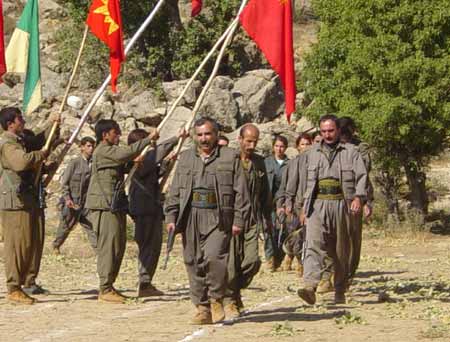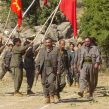
The PKK Extends its Unilateral Ceasefire
Publication: Eurasia Daily Monitor Volume: 6 Issue: 106
By:

In response to the Turkish President Abullah Gul advocating a peaceful solution to the Kurdish question, 72 NGO’s in Diyarbakir province declared their support for his steps toward solving the issue. They also requested that the PKK extend its unilateral ceasefire first announced in April 2009 (Milliyet, May 28). In response to growing public pressure and the positive environment toward resolving the Kurdish issue, the Kurdistan Workers Party (PKK) has extended its unilateral ceasefire until July 15. Before the PKK extended its ceasefire, however, it stated that "whenever the Turkish army conducts operations against PKK units deployed within the country’s mountainous areas, we will defend our positions and target their military units" (ANF News Agency, June 1).
It appears that the PKK does not want to lose its recent political gains, after the Democratic Society Party’s (DTP) decisive victory in the local elections in the Kurdish region on March 29. The PKK leadership announced that it successfully implemented policies which had resulted from the election victory. In order to maintain these gains Abdullah Ocalan, the PKK’s imprisoned leader, requested that the PKK extend its ceasefire (www.rojaciwan.com, June 1)
The second key individual within the PKK, Cemil Bayik, has revealed that Ocalan will announce a new "roadmap" in August, addressing the issue of how to resolve the Kurdish question. Bayik further stated that despite the continued operations conducted by the Turkish army against the PKK, it will insist on pursuing only a political solution. "The PKK has gained what it could from the armed struggle, and the state cannot gain anything with its military operations. The international community is also supporting the peace process. Thus it is now time to find a peaceful solution," explained Cemil Bayik (ANF News Agency, June 2).
The Turkish press reported that the recent extension of the ceasefire is not a strategic step designed to achieve any military advantage, but is linked to the PKK’s aim of finding a permanent solution to the Kurdish question. In addition, it was reported that depending on how these positive developments are received, the PKK might extend the ceasefire until September 1 (Referans, June 2).
However, the extended ceasefire does not mean an end to the clashes between the PKK and the military. The PKK’s new commander in chief, Nurettin Sofi said that he wants the Turkish army to cease its operations, otherwise the PKK might extend the conflict inside Turkey to include major Turkish cities (ANF News Agency, May 31).
The difficulty of the durability of the ceasefire lies in how to convince the Turkish security agencies to stop conducting their operations against the PKK. Military analysts argue that as long as the PKK militants are located in the mountains the security agencies have to conduct such operations to eliminate the threat. The Turkish government cannot ignore the existence of PKK militants in the mountains. For this reason many liberal intellectuals and political observers believe that the PKK should withdraw its units form Turkish territory to reduce the risk of further clashes (Taraf, May 29, May, 30). Inside PKK circles, however, this idea is vehemently opposed.
One explanation for the hesitance of the PKK to withdraw its units beyond the Turkish border is the fear of losing its strategic position and logistical advantages in the mountains. In addition, the PKK withdrew its militants to northern Iraq in 1999, during which it lost 600 militants in local clashes. That was 25 percent of the total number of PKK militants. Thus, it is less likely to expect that the PKK will withdraw its units. On the other hand, the Chief of the Turkish General Staff, General Ilker Basbug, openly stated that the PKK has two options: "laying down its arms or we will take them from their hands" (Bugun, June 3). In addition, the Kurdish press reported that the prime minister’s new advisor on counter-terrorism is known for his hard line stance on the Kurdish question, which lessens the likelihood of securing a rapid solution (ANF News Agency, May 31).
In these circumstances, it is unlikely that the clashes between the PKK and the Turkish military will end in the short-term. The clashes keep the wounds open, which in turn prevents the political actors from taking effective counter measures to address the Kurdish question. Despite high public expectations over finding a peaceful solution, and the AKP government actively seeking a solution, the "technical difficulties" such as continued clashes between the PKK and the military, undermines the prospect of securing a peaceful solution for the Kurdish question.




